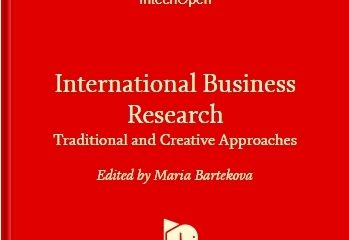Impact of artificial intelligence on transportation sustainability

Article “THE ASSESSMENT OF THE IMPACT OF ARTIFICIAL INTELLIGENCE ON TRANSPORTATION SUSTAINABILITY” by Elena Kaledinova and Dianthy Boeldak
Article link (.pdf, open access): THE ASSESSMENT OF THE IMPACT OF ARTIFICIAL INTELLIGENCE ON TRANSPORTATION SUSTAINABILITY
Journal: Scientific Journal of Silesian University of Technology. Series Transport, volume 125, 2024
Description: The article explores how AI technologies influence the sustainability of transportation companies and describes various AI applications in transportation, assessing their potential to optimize business processes, reduce environmental impact, and improve overall sustainability. The authors designed the Transportation Technology Sustainability Index (TTSI) to monitor the use of AI technology in transportation and measure the impact of AI or other advanced technologies on sustainability.
Keywords : artificial intelligence, sustainability indicators, transportation sustainability, Transportation Technology Sustainability Index, company benchmarking, AI skills
The article achieved several key objectives:
- Development of the Transportation Technology Sustainability Index (TTSI): This index is based on sustainability indicators (SIs) and dimensions validated through expert interviews.
- Validation of Sustainability Indicators: The study identified and validated dimensions and SIs, such as CO2 emissions, energy efficiency, cost optimization, and ethical principles, to assess AI’s role in sustainable transportation.
- Insights from Expert Interviews: Interviews with Dutch road freight transportation companies provided valuable insights into the benefits and challenges of AI integration, including emission reduction, route optimization, and employee well-being.
- Recommendations for Stakeholders: The article offered actionable recommendations for transportation companies, policymakers, and other stakeholders to enhance sustainability through AI. The Transportation Technology Sustainability Index (TTSI) can be applied in several practical ways to enhance sustainability in the transportation sector: a) Performance benchmarking: Companies can use the TTSI to evaluate their current sustainability practices and compare them with industry standards or competitors. This helps identify areas for improvement. b) Decision-making tool: Policymakers and transportation companies can rely on the TTSI to assess the sustainability impact of adopting new technologies, such as AI, blockchain, or IoT, before implementation. c) Monitoring progress: The index allows organizations to track the effectiveness of sustainability initiatives over time, ensuring continuous improvement. d) Stakeholder communication: By quantifying sustainability efforts, the TTSI can be used to communicate progress to stakeholders, including investors, customers, and regulatory bodies. e) Strategic planning: The index provides insights that can guide long-term strategies for reducing environmental impact, optimizing costs, and improving social responsibility.
- Future Research Directions: It highlighted areas for further exploration, such as applying the TTSI to other technologies like blockchain and IoT, and expanding research to include international perspectives.
The study underscores the potential of AI to foster sustainability in transportation while addressing barriers like employee awareness and technological limitations.
How to cite (APA):
Kaledinova, E. & Boeldak, D. (2024) The assessment of the impact of artificial intelligence on transportation sustainability. Scientific Journal of Silesian University of Technology. Series Transport, 125, 101-113. ISSN: 0209-3324. DOI: https://doi.org/10.20858/sjsutst.2024.125.7

